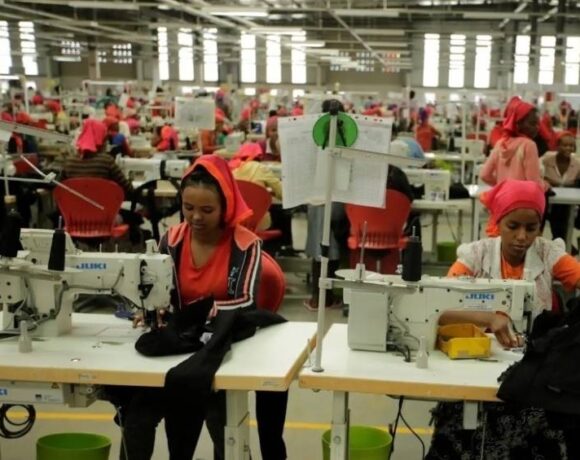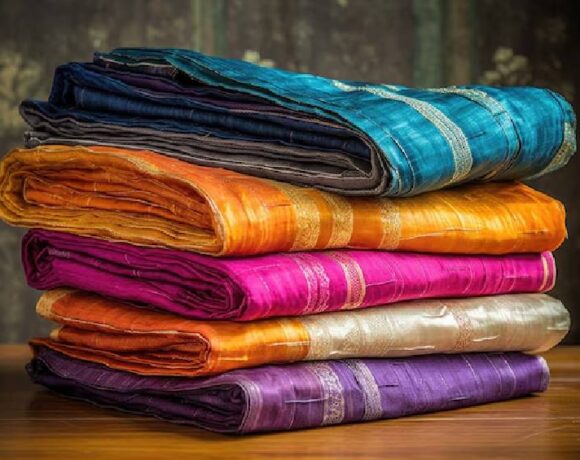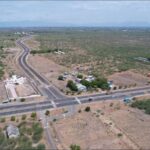Investment In Bangladesh Textile Industry Slows Down

The investment in the Bangladesh spinning and weaving industry has slowed down because of gas shortage and for volatile dollar markets over the last two years.
Many of the spinning mills have been running their production at 50 percent capacity because of the gas crisis in the industrial sector.
Last year, no new spinning or weaving unit was established in Bangladesh although demand for local fabrics of both knit and woven has been increasing, to shorten the lead time on export of garment items.
For instance, if the fabrics are imported from China it takes nearly 40 days which is too a long time considering the stiff competition from competitors worldwide.
But if the local fabrics and materials are used, it takes only a few days or one or two days for processing as the local spinners or weavers can supply from their mills.
The international clothing retailers and brands do not want to spare more lead time as they also have to compete with their peers in their respective countries.
However, the investment in such a vital sector has slowed down because of gas crisis and for volatile dollar exchange over the last two years mainly stemmed from Covid-19 and Russia Ukraine war fallouts.
Currently there are 550 spinning mills in the country and investment in the country’s textile sector that includes, spinning, weaving, dyeing, washing, finishing and printing, is nearly $25 billion.
The installed spinning capacity is 4,500 million kilogrammes, but is manufacturing just 2,400 million kgs of yarn currently as full capacity can’t be utilised because of the gas and power shortage.
There are around 60 weaving mills producing fabrics for the garment sector, while denim mills produce more than 700 million yards of fabrics per year, data from Bangladesh Textile Mills Association (BTMA) said.
Most of the spinning mills are producing cotton yarn for knitwear sector and so local spinners can supply nearly 90 percent raw materials as more investment took place in the knitted yarn spinning sector.
From the very beginning the local spinners have mainly investedvin the cotton spinning sector as it was easy for them due to lack of knowhow in non-cotton yarn.
As a result, of the total exported garment items from the country, some 71 percent is cotton made yarn and 29 percent is non-cotton yarn.
“However, recently, the spinners have been investing on non-cotton units to grab more market share as prices of non-cotton garment items are better than cotton made garments,” Textile Today reported.
The spinners can supply nearly 90 percent raw materials to knitwear sector and 45 percent to the woven sector, while the remaining demand is met through import mainly from India, China and Pakistan.
The impact of the slowdown in investment in spinning sector is dangerous, because, the country’s $46.99 billion worth of garment exports is largely dependent on integration with the textile sector.
Domestic garment exporters will have to import the yarn and fabrics and spend billions of dollars on imports from other countries like India, Pakistan and China.
For instance, in fiscal 2022-23, Bangladesh imported woven fabrics worth Tk 36,527 crore to meet the demand of local garment exporters, BTMA data informed.
This is just one segment of import of textile raw materials. If the amount of other segments like yarn and knitted fabrics are also added, the amount will be even higher.
The Bangladesh government doubled gas price in February in 2023 to Tk 30 per unit from Tk 16 per unit. But gas supply situation did not improve to the expected level.
The volatile dollar exchange rate has also a negative role in inflow of investment in the spinning mills.
Many entrepreneurs have opened Letters of Credit (LCs) for importing machinery when the dollar rate was lower and hovering at Tk 87 per US dollar before the outbreak of the Russia Ukraine.
However, the war impacted the dollar exchange rate severely and the rate reached Tk 111 per dollar, which made import costlier for investors.
Moreover, the dollar is not even available at the official rate for which entrepreneurs have to buy dollar at Tk 123 from unofficial channels and even from the banks to import capital machinery.















